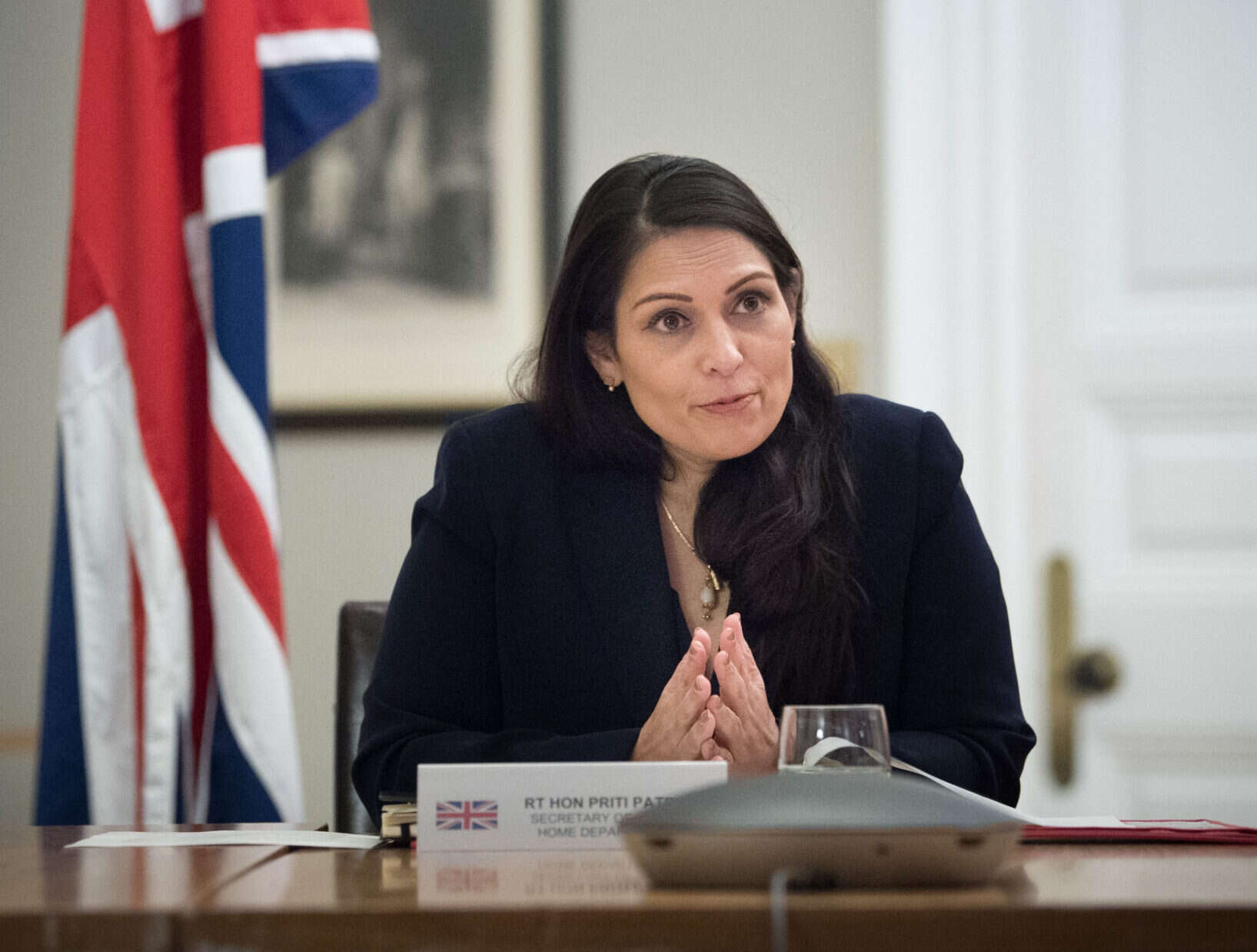
Press Gazette has written to the Government consultation on new legislation to counter state threats, expressing its concern that journalists would be treated like spies and so punished for sensitive stories.
Home Secretary Priti Patel (pictured) has asked for views on the Government’s proposed reforms to the Official Secrets Act, responding to recommendations put forward by the Law Commission. The consultation closed on Thursday night.
The Government said in its proposals that “we do not consider that there is necessarily a distinction in severity between espionage and the most serious unauthorised disclosures”. This includes leaks published by the press, which it said could be as or more damaging than acts of espionage.
[Read more: UK journalists could be jailed like spies under proposed Official Secrets Act changes]
The news media industry has united across the political spectrum against the proposals, with a number of titles and journalists submitting their views to the consultation. We share our own submission below.
Press Gazette’s submission in full:
I’m sure the Government would agree that press freedom is fundamental to any democratic society.
The UK has gone to lengths to publicly support this idea at home and abroad through the Media Freedom Coalition, of which it is a member and, alongside Canada, co-hosted the first ever Global Conference for Media Freedom in London in July 2019.
At the conference, the UK and other member nations signed a Global Pledge on Media Freedom, the opening paragraph of which states: “Journalists and media organisations are increasingly confronted in their vital work by restrictive laws, punitive legal measures, and physical violence.
“Too often, whether they work with traditional media or on digital platforms, they pay for their commitment with their liberty or their lives.”
The signatories also committed to “encouraging and supporting governments to take action to strengthen media freedom…”.
It would be embarrassing and worrying if, as we are encouraging other countries against suppressing journalism and publicly signalling our concern about “restrictive laws” against journalists, we were to bring in a legislative crackdown on journalism at home.
And yet the proposed reforms to the Official Secrets Act 1989 could make criminals of investigative journalists who expose government wrongdoings through reporting that would necessarily include the dissemination of sensitive material.
“Onward disclosure” is more simply known as journalism. It is part of a journalist’s job in holding power to account to receive and publish what might be sensitive information. Where UK operatives’ lives are at risk, editors have already proven they are willing to take precautions to protect them.
The Government’s claim that “we do not consider that there is necessarily a distinction in severity between espionage and the most serious unauthorised disclosures” essentially puts journalism on a par with spying when the two are clearly distinct.
Journalism seeks to publish information that exposes injustice or wrongdoing in the hope that society might change for the better, not for the benefit of a foreign power. Keeping wrongdoing a secret does us more harm.
It may at times be embarrassing for governments and public institutions to have sensitive information they would rather keep private made public. All the more reason then not to hand politicians the power to stifle a free press in an act of improper reprisal.
A simple creed benefits all of us in a free society: If the public interest in disclosure outweighs the public interest in secrecy, then the matter should be made public.
The Expenses Scandal, reported by The Telegraph in 2009, exposed improper claims on the taxpayer’s purse by MPs and led to widespread political reform and greater transparency. Had the proposed new laws been in force at the time, Telegraph journalists could have faced criminal charges for their work.
Similarly The Sun’s recent scoop exposing former Health Secretary Matt Hancock’s violation of Covid-19 lockdown restrictions would – the paper has itself warned – have been covered up under the proposed legal reforms, and the public kept in the dark.
Any reform to the Official Secrets Act 1989 must include a robust public interest defence to protect the valuable work journalists carry out. And it should not be up to the government, or any body influenced by it, to define what is in the public interest.
It is not difficult to imagine that under the proposed laws any information not expressly sanctioned for release by the government could be deemed an act of hostile activity.
The Government has said it welcomes the Law Commission’s recommendations that offences in sections 1-4 of the 1989 Act “should no longer require the prosecution to evidence proof or likelihood of damage”.
This would mean prosecutions could be brought against journalists where there is no proof that the information has caused any damage to the state. It would be difficult to see how jailing a journalist whose work has exposed secrets in the public interest, with no proof of damage, would deliver justice.
No-one can deny that the counter espionage laws need updating to reflect modern threats, but treating journalists like spies who could face jail for simply doing their jobs does not advance the cause of a free, open and democratic society.
Britain is home to some of the best journalism in the world. Our robust newspapers, websites, TV channels and magazines expose corruption and hold the powerful to account on a daily basis.
Protection for whistleblowing which serves the public interest ought to be strengthened, not weakened, because we all benefit from it.
This argument is not about selling newspapers, or attracting online clicks, it is protecting Britain’s status as an honest and relatively corruption free society.
Email pged@pressgazette.co.uk to point out mistakes, provide story tips or send in a letter for publication on our "Letters Page" blog
